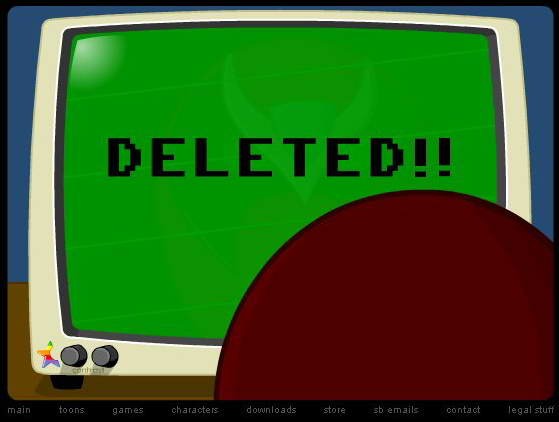Monday, August 15, 2016
No, Council President Stuckart should not be deleting important voicemails about city business
When City Council President Ben Stuckart told Attorney Laura McAloon he would not be willing to support her for city attorney this week, he cited two reasons: The first was her interactions with the independent investigator looking into the city's police chief scandal, which partly led to the investigator watering down key findings from her report. But the second was a "nasty" voicemail that McAloon sent to Stuckart's personal cellphone, where she allegedly called him a liar.
In other words, a single voicemail had become a crucial part of the story.
On August 2, the Inlander made
For example, here's a message from Mayor David Condon apologizing to McAloon for the turmoil the drama around the investigation's release had caused her personally:
Condon_McAloon_Voicemail.mp3
But the voicemail from McAloon to Stuckart? Stuckart had already deleted it.
"I didn’t want to be playing it for people," Stuckart said. "It was rude. She called me a liar."
Not only that, but he says he's been deleting voicemails for at least the past four years, often weekly. His phone's storage fills up quickly, he says, particularly because one citizen leaves five or six messages a day.
Depending on the content of those voicemails, however, those deletions could be a violation of state records retention rules.
Yeah, all this can be tricky for local governments to figure out, says Russell Wood, state records manager for the Washington State Archives.
"We do quite a bit of training," Wood says. "We have a lot of people that give us the deer in the headlights look."
Part of the complication has to do with the shifting legal landscape surrounding public records: In August of last year, the state Supreme Court making it clear that text messages sent to employees' personal cell phones are potentially subject to public record requests.
But this point is clear: The format of the record doesn't make a difference.
It's not the medium that matters. It's the message. That's true whether they're emails or text messages or voicemails or notes scribbled down taken on cocktail napkins.
"If you’re transacting public business — then it’s public record," says Wood.
Granted, emails, text messages or voicemail messages that are "transitory" can be deleted as soon as they're no longer relevant, Wood says.
Transitory messages could include messages like, "Hey, this is the mayor, call me back." Or, "there's cookies in the breakroom." Or "new phone who dis?"
A lot of voicemails — maybe even most — fall into this category.
"[But] if it says, 'go ahead, your project's approved, your leads are approved,' then you’re transacting business," Wood says.
The phrase the state uses is "business transaction." But that doesn't mean it needs to involve money. As soon as you go beyond, "call me back," he says, to actually discussing the issues concerning the city or public agency, then it needs to be saved for a certain period of time.
So how about a voicemail where the mayor's city attorney selection calls the city council president and accuses him of being a liar for comments he made about her involvement in an investigation?
Wood says it's hard to know without knowing the full context. But if the voicemail discussed specifics of city business, then it shouldn't have been deleted.
How about, say, citizens calling city council members to complain about their neighbor's chickens or about the awful merge onto the Maple Street Bridge?
Those definitely have to be saved.
"Citizen complaints and requests need to be retained for three years after the matter has closed," Wood says.
Arguably, the voicemail from McAloon could also be considered a complaint from a constituent.
If these deletions were something that Stuckart had done intentionally in order to cover something up, instead of an honest mistake, the consequences could be massive, particularly as an elected official:
"Every officer who shall mutilate, destroy, conceal, erase, obliterate, or falsify any record or paper appertaining to the officer's office," the state law says, is guilty of a class B felony, punishable by up to a $5,000 fine and up to10 years in prison.
Stuckart says that he approached the city to ask if there was a policy in place to handle work-related voicemails.
"If there were work-related voicemails, should I be downloading those somewhere?" Stuckart recalls asking. Currently, he says, no such policy exists, but he thinks the city should develop one.
How city officials have handled public records has become a flashpoint over the past year. Last month, independent investigator Kris Cappel concluded that the city attorney's office had intentionally withheld key documents concerning former Police Chief Frank Straub until after the election, drawing fervent and outraged denials from the city attorney staff and the Condon administration.
During the investigation, Condon attacked Stuckart of being politically motivated and suggested that Stuckart and former Councilmember Jon Snyder had attempted to "circumvent the public records process" by using their campaign emails, instead of their city email addresses in an exchange about the issue. Stuckart denied this was his intention, pointing out that he had included his legislative assistant's city email address to make sure it would be included in records requests.
Cappel's investigation revealed the differing ways that employees had handled their records.
Director of Strategic Initiatives Tim Schwering told Cappel that former police spokeswoman Monique Cotton's city-issued police department cell phone had been completely wiped before they could check it. City administrator Theresa Sanders told Cappel that she was a "text-deleter," but said that her texts were generally "transitory." Sanders correctly preserved several important texts from Cotton by printing them out and delivering to the city attorney's office.
Sanders and Condon now have cellphones specifically dedicated to city business, and the city's clerk office has been developing new guidelines surrounding public records. One of McAloon's first plans as city attorney had been to conduct a comprehensive review into how the city attorney's office handled public records.
But now that she's withdrawn — thanks in part to
Tags: public records , scandal at city hall , Laura McAloon , Ben Stuckart , News , Image , Audio





























